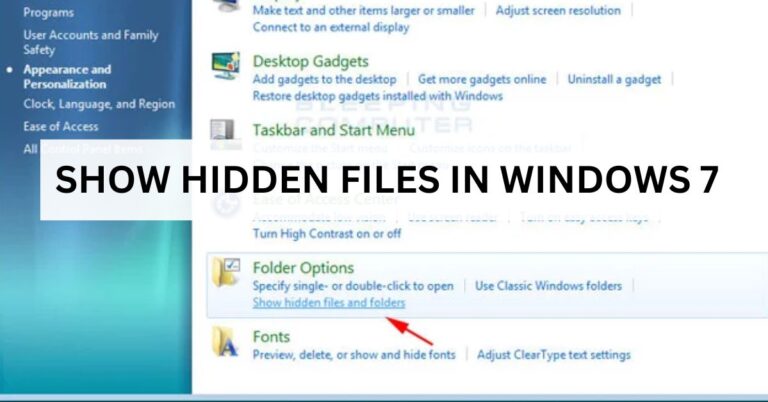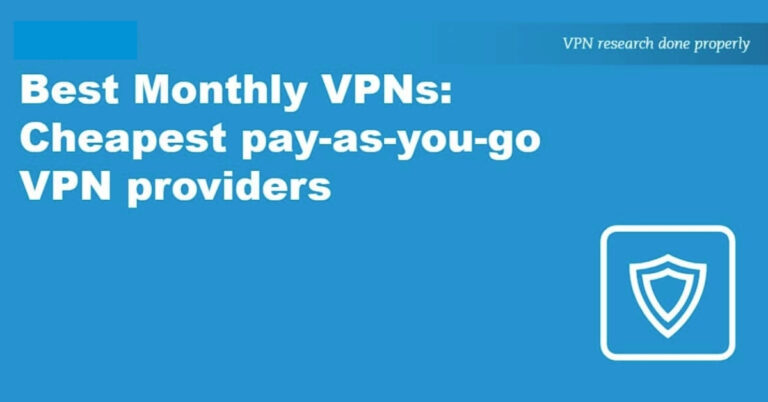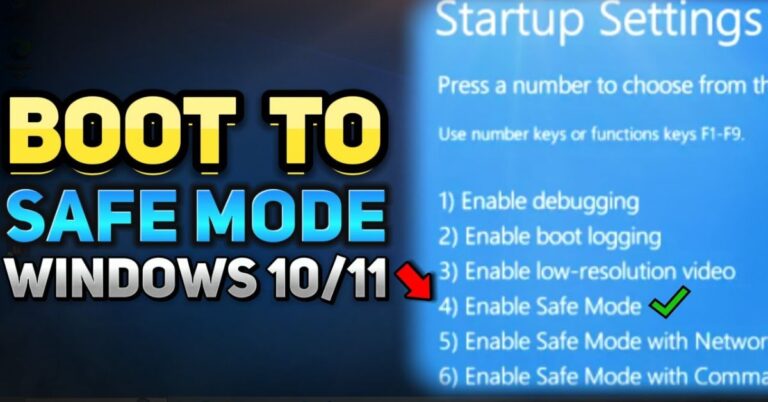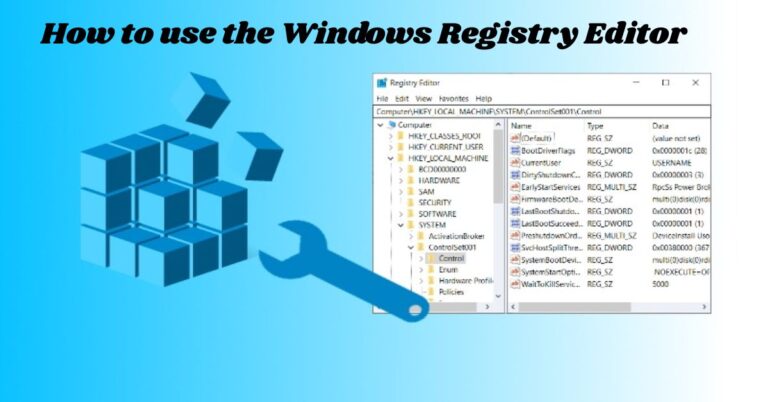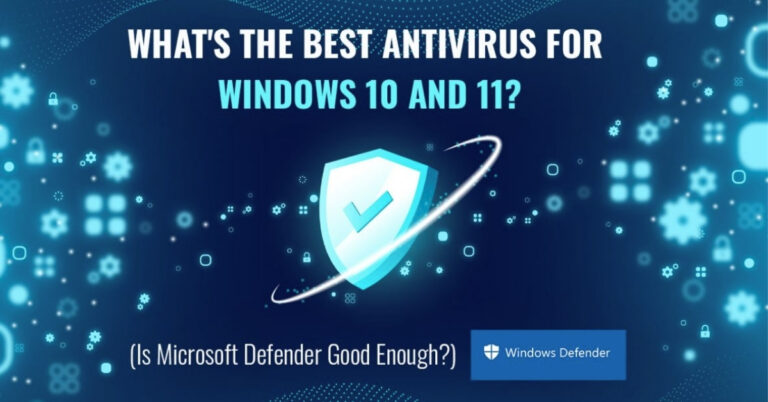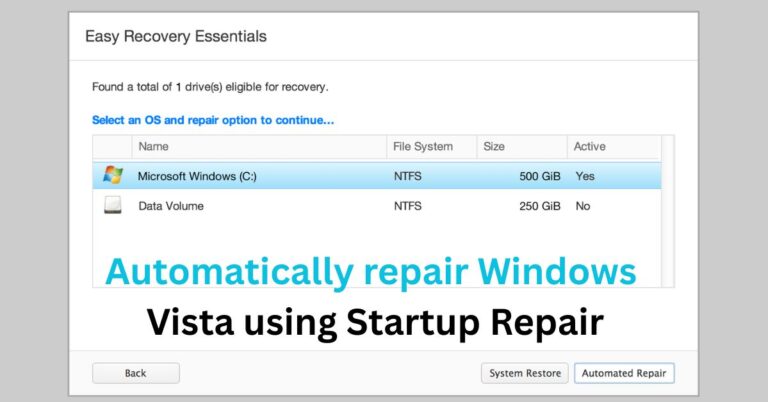10 Best Free Antivirus Software for Windows in 2025
- 🥇 Norton : Simple-to-use antivirus and PC repair software for Windows, with great optimization tools that clean junk files, boost startup times, and free up system memory. Its advanced malware detection can remove hidden threats that slow your PC down, and the cloud-based scanner ensures minimal impact on performance.
There are lots of free Windows antiviruses, but only a few of them are any good. I tested dozens of free antiviruses to find out which programs could defend against Windows-based malware and other threats (including phishing and social engineering attacks). Beyond malware detection, I looked at each antivirus’s reputation for safeguarding your privacy and its ability to integrate with all aspects of Windows, including Windows Defender.
But it’s important to know that every free antivirus has limitations. That’s why I always recommend investing in premium antivirus software that includes protection against all types of malware, with extra like a virtual private network (VPN), dark web monitoring, and a password manager (Norton 360 has all of these features and is ranked as the best antivirus software for 2025).
That said, it’s better to use the best free antivirus than no antivirus at all. I found several good free antivirus programs that complement and improve upon Windows’s built-in protections and include features that aren’t included in Windows Defender.
Quick Summary of the Best Free Windows Antiviruses for 2025
Editor’s Choice
Best Windows antivirus on the market in 2025 (with a 60-day money-back guarantee) .
Most of our readers choose Norton
Advanced, lightweight antivirus & anti-phishing tools with low system impact.
Strong virus protection with good additional features (like a gaming mode).
Excellent antivirus suite for Windows with quick and effective clean-up and optimization tools.
Good virus scanner with lots of extras (including cleanup tools).
May 2025 update: We’ve thoroughly fact-checked and updated this article to ensure it reflects the latest vendor features and information. We’ve also added pros and cons tables to make comparisons easier.
Not sure which antivirus suits your needs?
Take a 1-minute quiz, and our experts will help you find the best option for you!
What type of devices do you primarily want to protect?
Step
1
of
3
300+ people found the right antivirus today
*This recommendation is based on our assessment; users are urged to consider individual factors before choosing a vendor.
🥇1. Norton — Best Overall Windows Antivirus in 2025
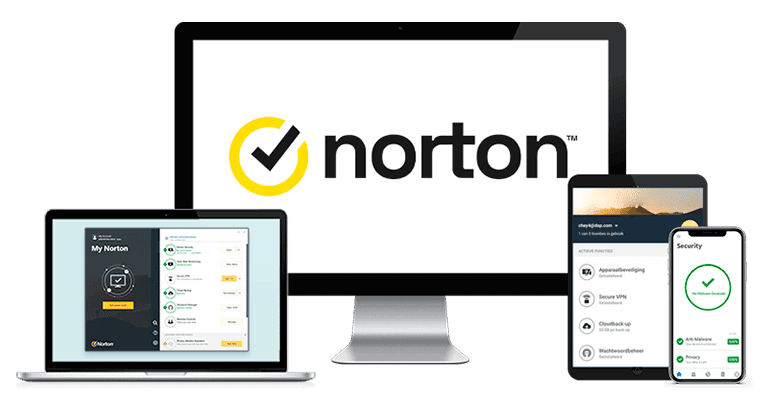
Norton is my favorite Windows antivirus — and while it doesn’t have a free plan, it regularly offers free trials and has a risk-free 60-day money-back guarantee, which gives you 2 months to try it out and see if it’s right for you. It has an advanced malware engine, a wide range of additional features, and affordable plans that cover all operating systems.
Pros
- Advanced phishing protection
- Free malware removal tool
- Regular free trials
- 60-day money-back guarantee
Cons
- No free antivirus plan
Norton’s free-forever features are great, even without a free antivirus plan. The password manager generates, saves, and auto-fills secure logins while auditing password strength. The Private Browser blocks ads, trackers, and shields you from online threats. Additionally, the email breach checker scans for data breaches, alerting you if your email is compromised. These standalone tools are always free, easy to use, and enhance your security without requiring a paid plan.
Power Eraser is another free Norton tool that excels at removing stubborn malware from your Windows PC. It supports full system scans and can be configured to detect rootkits and PUPs/PUAs. However, Power Eraser lacks real-time protection, automatic scanning, and the ability to scan USB drives. You must manually initiate a custom scan to use it. In contrast, Norton’s premium plans automatically scan USB devices upon detection, offering more robust protection.
In all of my tests of the premium plans, Norton was able to identify every malware sample, from simple ones like viruses to sophisticated threats like rootkits. It also has excellent phishing protection, a smart firewall with tons of customization options, and online banking and shopping protection.

Norton’s premium plans include a wide range of high-quality extras, such as:
- VPN (unlimited data) — maintains fast speeds, works with streaming sites like Netflix, and has extras like Tor support and split-tunneling.
- Parental controls — filters inappropriate content, limits device usage, and monitors YouTube and Hulu usage (Norton ranks #1 on our list of the best antiviruses with parental controls and #2 on our list of the best standalone parental control apps).
- System optimization tools — removes unwanted files from Windows and web browsers, improves boot time, and defragments hard drive.
- Premium dark web monitoring — scans dark web forums, data breach databases, and credit reports in real time.
Norton’s dark web monitoring is particularly impressive, using human agents to actively investigate forums and uncover leaks that automated tools might miss. The free email breach checker provides a taste of this, but the premium version offers comprehensive protection.

Overall, Norton provides a better user experience than any other antivirus. It’s very easy to use and integrates well with Windows Defender, so you don’t have to adjust any settings. It even has a gaming mode, so you can play games without interruption while it runs in the background.
There are several plans available, but Norton 360 Deluxe is the best value — plus, with our special 58% discount, you can get it for only $49.99 / year. Norton also offers LifeLock plans in select countries, which start at $99.99 / year and add identity theft protection with up to $3M in insurance payouts and legal assistance. All of Norton’s plans are covered by a 60-day money-back guarantee.
Save 58% on Norton 360 Deluxe!
Get Norton 360 Deluxe for only $49.99!
60% SUCCESS
Bottom Line:
Norton offers unparalleled malware protection, a wide range of high-end security features, and affordable plans. It also has a ton of extras, including a fast VPN, a secure password manager, and the best antivirus-bundled parental controls around. While it doesn’t have a free Windows plan, it does provide a great free malware removal tool for PCs called Power Eraser. But it’s worth picking up a paid plan, as they provide the best value on the market and come with a 60-day money-back guarantee, so you can try Norton out risk-free for 2 whole months.
🥈2. Bitdefender Antivirus Free for Windows — Lightweight With Advanced Malware & Web Protections
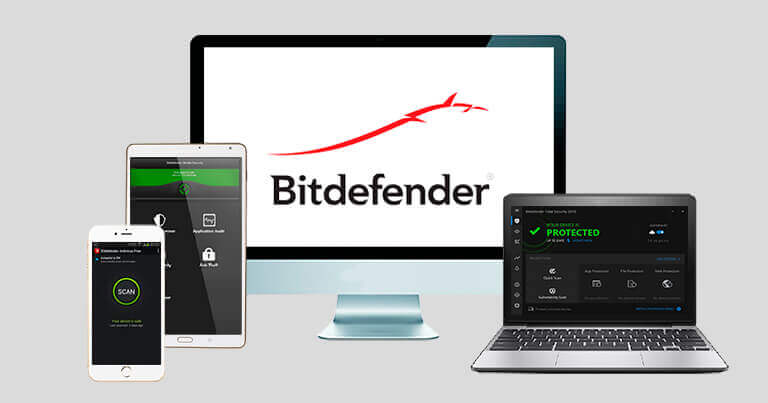
Bitdefender Antivirus Free for Windows is one of the best free-forever antiviruses out there — its malware scanner scored a 100% detection rate during my tests, detecting viruses, trojans, ransomware, and even rootkits, which are notorious for being difficult to eradicate.
Pros
- Excellent malware detection
- Lightweight cloud-based scanner
- Excellent phishing protection
- Real-time protection
Cons
- Limited free features
- VPN data limits
Bitdefender uses a cloud-based scanner, which means most of the detection and analysis doesn’t happen on your PC. Thanks to this, I didn’t notice any slowdowns on my computer, even during full system scans.

Bitdefender also provides excellent anti-phishing protection with its free antivirus. During testing, it blocked many phishing websites that had evaded detection from the built-in protections on the Chrome and Firefox browsers, as well as the anti-phishing tools of other antiviruses. Out of all the brands on this list, only Bitdefender and Norton had perfect anti-phishing results.

The free version of Bitdefender, while robust, lacks the extra features found in its premium plans. It delivers top-tier malware, web, and real-time protections, ransomware protection that enhances Windows’s BitLocker encryption, and manual USB drive scanning. However, upgrading to a premium plan unlocks additional tools like a VPN, device optimization, a password manager, parental controls, a dedicated firewall (the free version relies on Windows Defender’s firewall), and automatic USB drive scanning. One drawback is that most Bitdefender plans impose strict VPN data limits, unlike Norton, which offers unlimited VPN data on most of its plans.
Bitdefender’s paid plans are very affordable, starting as low as $34.99 / year for Bitdefender Antivirus Plus. Then there’s Total Security, which includes most of Bitdefender’s features for 5 devices (it’s missing the unlimited-data VPN and a couple of minor features). It costs $54.99 / year. If you need the full version of the VPN, opt for Premium Security, which costs $64.99 / year. All plans are backed by a 30-day money-back guarantee.
Get 50% off Bitdefender Total Security!
Get Bitdefender for just $34.99
60% SUCCESS
Bottom Line:
Bitdefender’s free Windows antivirus is a top-tier, no-frills solution to protect your device from malware and web-based threats. It has perfect detection rates and will barely impact your device’s performance. To get access to a bunch of extra features, however, you’ll have to upgrade to one of Bitdefender’s premium plans. All of its plans are backed by a 30-day money-back guarantee, so you can try it out risk-free.
Read the full Bitdefender review here
🥉3. Panda Free Antivirus for Windows — Good Virus Protection With Decent Extras
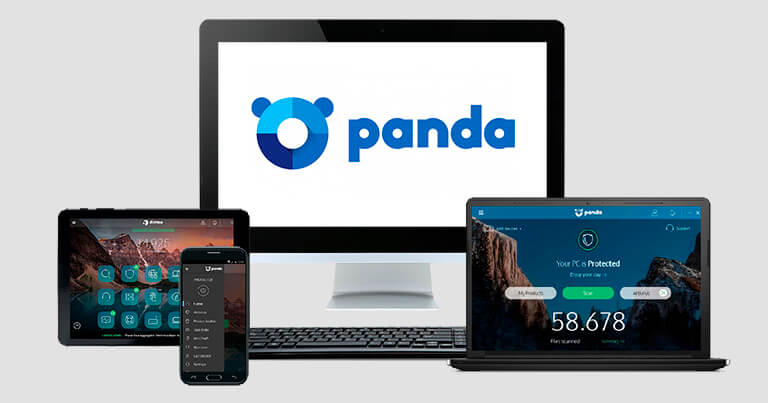
Panda Free Antivirus for Windows is lightweight, secure, and easy to use — during my tests, Panda’s free antivirus scanner detected significantly more adware, spyware, and ransomware files than Windows Defender. Panda’s real-time protection also performed really well, blocking most of the malware files I tried downloading to my PC.
Pros
- Strong malware protection
- Automatic gaming mode
- USB Rescue Kit
- Lightweight interface
Cons
- Limited VPN data
- No web protection
One reason Panda’s free antivirus is a good choice for Windows users is its Rescue Kit, which allows you to download a bootable version of Panda to a USB drive and then use the USB drive to clean an infected PC and get it up and running again. You can download a bootable copy of Windows from Microsoft’s website and use its repair function, but in my tests, Panda was better than Windows at spotting malware on a PC that won’t start.

I like that Panda has a gaming mode in its free antivirus — whenever you’re playing a game or watching a full-screen video, Panda automatically suspends notifications. Its USB Vaccine feature automatically scans and disables autorun malware on USB drives, making it great for gamers using external storage for mods. However, I still prefer Norton for gaming, as the gaming mode can actually speed up your PC (especially if you subscribe to the gamer plan).
Panda’s free antivirus also comes with a secure (but limited-data) VPN. It provides fast connection speeds, but it only lets you connect to 1 server and has a data limit of 150 MB per day — this is an improvement over Avira’s 1 GB per month, but it’s still not nearly enough data for streaming or file sharing. If you’re interested in unlimited streaming or torrenting, you’ll need a better VPN (check out our list of the best antiviruses with VPNs here or our list of the best free VPNs).
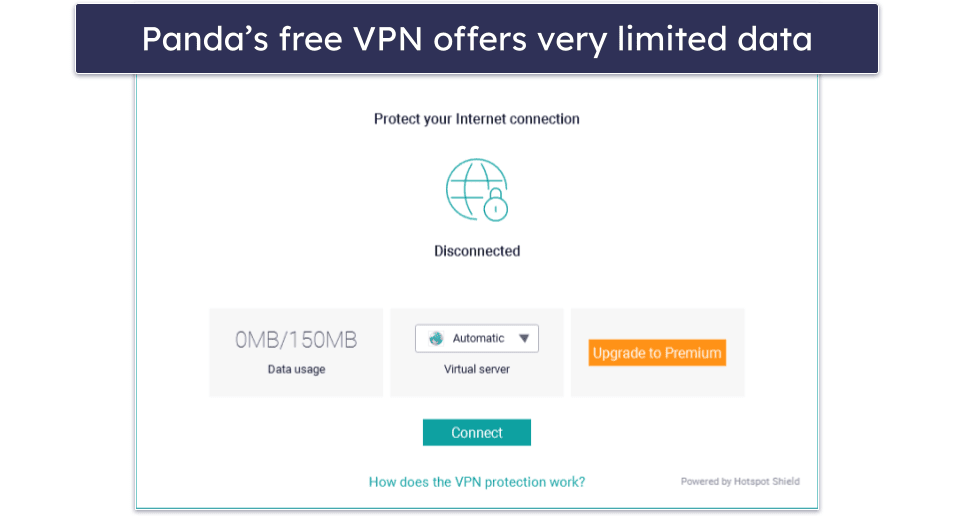
The Panda Dome Premium plan offers an unlimited-data VPN (and access to worldwide servers), and it also has features like a firewall, anti-ransomware protection, anti-phishing protection, advanced system tune-up tools, a password manager, and basic parental controls for $63.00 / year. All of Panda’s premium plans come with a 30-day money-back guarantee.
Save 55% on Panda today!
Get for only $40.50!
60% SUCCESS
Bottom Line:
Panda’s free antivirus is a good, easy-to-use antivirus, offering 100% free real-time malware protection. With lightweight malware scanning, an automatic gaming mode, a Rescue Kit, and a VPN, Panda is an excellent free internet security product that improves on Windows’s default tools. But if you want an unlimited-data VPN and other extras like a firewall, anti-phishing, password manager, and basic parental controls, you’ll need to upgrade.
4. TotalAV — Most Intuitive Antivirus, Great for Beginners
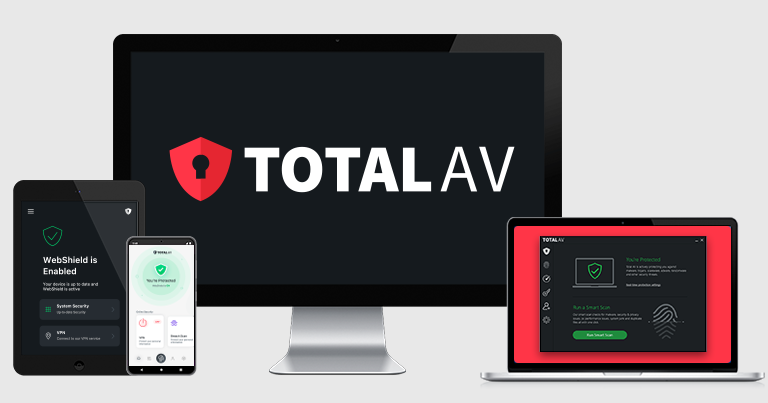
TotalAV provides an excellent malware scanner. During my tests, it detected and removed more malware samples (viruses, trojans, ransomware, spyware) than most other antivirus programs (including Windows Defender). As a cloud-based tool, it uses fewer resources than a lot of other programs, too, which is great!
Pros
- Beginner-friendly interface
- High malware detection
- System optimization tools
Cons
- No real-time protection
- Limited free plan
TotalAV offers a limited free plan (you can check for and remove viruses and manually scan USB drives), but it also has a 30-day money-back guarantee on its annual plans, and it regularly offers huge first-year discounts, which make it one of the most affordable antiviruses on the market. I really think it’s worth paying a few dollars for an antivirus such as TotalAV, which combines top-notch security with perfect ease of use.
The software functions inside a minimalistic, well-designed dashboard. I had no problems navigating TotalAV’s dashboard, and I found it very simple to use and test all of the provided tools. Like Norton, it integrates seamlessly with the Windows operating system, automatically turning off Defender’s real-time protection so it won’t interfere with TotalAV.

In addition to real-time malware protection, you get useful extras like device optimization tools, an ad blocker, a secure browser, a VPN with unlimited data, a password manager, and more.
The VPN is pretty good — in fact, it’s our top-rated antivirus-bundled VPN. It works with all major streaming services and supports P2P file sharing on all its servers outside the US. While it didn’t slow down my connection too much, I don’t think it’s quite as good as standalone VPNs like ExpressVPN.
TotalAV’s paid plans start at $19.00 / year to cover 3 devices. But my favorite plan is TotalAV Total Security, which covers 8 devices for $49.00 / year and includes all of TotalAV’s features, including a solid password manager. All plans are also backed by a risk-free money-back guarantee of 30 days.
Bottom Line:
TotalAV’s Windows antivirus is excellent at removing various kinds of malware. It’s also one of the most intuitive antivirus programs on the market, which makes it an ideal choice for beginners. TotalAV has a limited free plan, but its paid Internet Security and Total Security plans are also very affordable and include real-time scanning, PC optimization tools, and a VPN with no limitations.
5. Avast One Basic — Effective Antivirus With Nice Privacy Tools
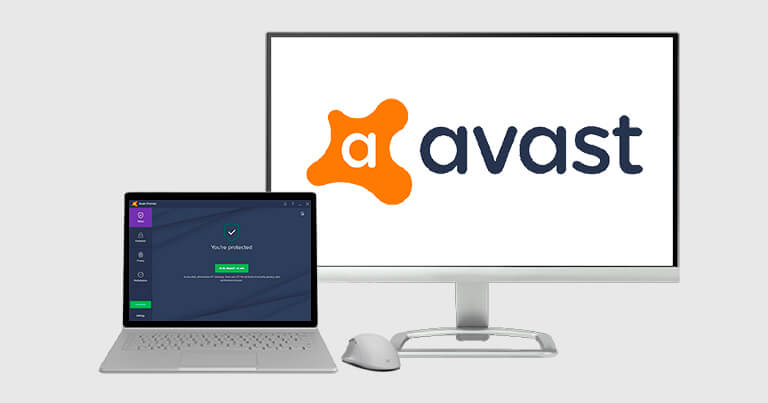
Avast One Basic is fairly comprehensive for a free Windows antivirus. It’s actually one of two free antiviruses offered by Avast — the other, Avast Free Antivirus, is basically identical to AVG’s free antivirus. Avast One Basic comes from the company’s newest product line and offers more free features, including a VPN and PC speedup tools. I found it easy to use and was pleased to see that it detected 100% of the malware samples I tested it on. Note that Avast One is only available in a handful of countries.
Pros
- Perfect malware detection
- Free firewall included
- Privacy Advisor tools
Cons
- Cluttered interface
- Limited VPN servers
I like that it encourages users to review their overall online security via the Privacy Advisor. The app automatically suggested I review my privacy settings on various websites and provided links and clear instructions on how to do so. Windows doesn’t provide anything like this on its own, so it’s a great addition.

Avast One Basic comes with a built-in VPN, but it isn’t ideal. You can’t change servers on the free version, and the provider doesn’t have a no-logs policy. Still, it’s nice that it operates within the same app as the antivirus and lets you use up to 5 GB of data each week (which is more than the other free VPNs on this list).
The free firewall is solid, monitoring traffic and blocking threats with user-friendly settings. It auto-scans USBs, offers strong web protection (blocking most malicious sites), and includes Network Inspector for Wi-Fi vulnerability checks. However, the interface feels a tad cluttered and less intuitive than Norton’s.
Avast’s premium plans start at $31.20 / year and include additional protections, such as webcam protection, extra online privacy features, and the ability to use Avast on 5, 10, or 30 devices. Avast also provides credit, social media, and identity theft monitoring to Avast One Platinum customers for $119.88 / year. All paid plans come with a 30-day money-back guarantee.
Bottom Line:
Avast One Basic is a good free-forever antivirus package with a powerful scanner. While it may not be the best free antivirus software out there, it has a solid firewall, good network protections, and nice privacy features that improve upon Microsoft Defender. The VPN has a fairly generous data allowance, and the app is quite easy to use. If you want unlimited data or added web protections, you’ll have to subscribe to one of Avast’s premium plans, starting at $31.20 / year.
6. Avira Free Security for Windows — Advanced Cloud-Based Malware Scanner With System Cleanup
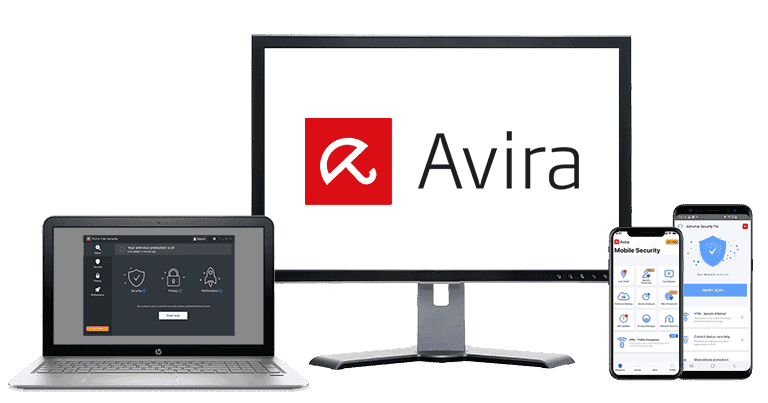
Avira Free Security for Windows has a solid anti-malware engine that operates fully in the cloud. In contrast to Microsoft Defender, this makes Avira fast, lightweight, and easy on system resources. During my testing, Avira’s anti-malware engine detected all of the malware files I previously downloaded to my computer, and I liked that I could run CPU-intensive programs during scans with almost zero slowdown.
Pros
- Perfect malware detection
- Lightweight cloud scanner
- Safe Shopping extension
Cons
- Limited VPN data
- No advanced optimization
Avira is also user-friendly — its display is very easy to navigate, with all features clearly listed. It comes with many excellent and completely free extra features, too. These include:
- Firewall.
- Safe Shopping browser extension.
- Privacy & performance optimizer.
- VPN (1 GB monthly limit).
- Password manager.
- Speed booster.
- File shredder.
- USB scan protection.

The Safe Shopping browser extension is really good — it blocks phishing sites, trackers, and annoying ads, plus it finds better deals while you shop. It works on Firefox, Chrome, Opera, and Edge. That said, if you’re worried about shopping safely online, I recommend checking out Norton’s Private Browser, which comes with built-in protection, a privacy guard, and more, and is 100% free.
I’m also a fan of Avira’s privacy and performance optimization tools — they cleaned out my cookies and junk files and also fixed hidden privacy settings that were leaking personal information on the web. Even the free versions of the driver updater and junk cleaner are a huge improvement over Windows, which makes these essential tasks surprisingly difficult. But unfortunately, Avira’s best optimization tools are locked behind a paywall.
It’s a shame that Avira’s free VPN is limited to just 1 GB per month, which is barely enough to watch a couple of really short videos (and substantially less than Panda offers on its free plan). Plus, Avira only lets you connect to your nearest server location on the free plan.
Avira Prime offers the VPN with unlimited data and costs $59.99 / year — it’s a bit pricier than some competitors, but it’s one of the best antivirus suites of 2025, and it also includes multi-device support and advanced system optimization tools. Avira backs all yearly subscriptions with a 60-day money-back guarantee.
Bottom Line:
Avira’s cloud-based, free virus scanning engine is a good way to keep your PC safe. It’s lightweight, fast, has great detection rates, and is 100% free. I’m also a big fan of Avira’s free Safe Shopping browser extension and privacy optimizer, both of which offer a significant improvement over Microsoft’s built-in protections. To get more advanced internet security protection, you’ll need to upgrade to one of Avira’s paid plans, which start at $26.99 / year.
7. Malwarebytes Free — Minimalistic Virus Scanner With a Couple of Neat Extras

Malwarebytes Free is a good choice for users looking for a simple antivirus that they can install at no cost and forget about. It performed pretty well in my tests, detecting around 95% of the malware files I hid on my PC. However, it did miss a few well-hidden files that competitors like Norton and Bitdefender detected.
Pros
- Decent malware detection
- Free dark web monitoring
- Browser Guard extension
Cons
- No real-time protection
- Limited extra features
Apart from the scanner, you also get Browser Guard, a free browser extension that protects against a wide range of threats, including malware, ads and trackers, scams, and PUPs. Though far from perfect, it blocked 90% of the risky sites on every browser I tested, outshining the basic web protections provided by the Windows operating system. It also blocks ads, though it isn’t as effective as Avira’s free extension.

You also get free dark web monitoring. I really like this feature: I simply entered my email address, and Malwarebytes showed me all of my exposed passwords, usernames, and other PII linked to that email, all in the form of a visually appealing diagram. The experience was chilling, but I was genuinely impressed by the thoroughness of Malwarebytes’s scan.
However, the free version lacks real-time protection, so you’ll have to rely on Defender’s somewhat lackluster protections. What’s more, features like Wi-Fi protection, a firewall, system tune-up tools, and a password manager aren’t available even in the premium plans. If you just need the basics, Malwarebytes is fine, but it’s pretty barebones compared to top competitors like Norton and Bitdefender.
For real-time protection, you can upgrade to Malwarebytes Standard, which provides coverage for 1-20 devices starting at $44.99 / year. Malwarebytes Plus also adds a decent VPN for $59.99 / year. Both of Malwarebytes’s premium plans are covered by a generous 60-day money-back guarantee. Additionally, Malwarebytes Free includes a 14-day free trial of Malwarebytes Standard, allowing you to test the paid features without any risk.
Bottom Line:
Malwarebytes Free is a minimalistic antivirus scanner with good virus detection and removal rates. It also comes with a browser extension that blocks malware, phishing sites, ads, and trackers (though the ad blocking is hit-and-miss). Upgrading to Malwarebytes Standard brings you real-time protection and coverage for up to 20 devices, whereas Malwarebytes Plus also adds a VPN.
8. AVG AntiVirus Free — Solid Malware Scanner With File Protections
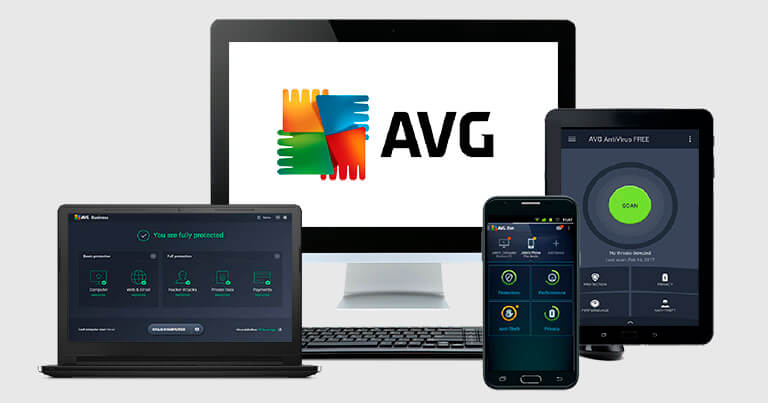
AVG offers a solid free antivirus that’s easy to use and has some nice features. It’s basically identical to Avast Free Antivirus — they’re owned by the same company and feature more or less the same underlying technology. It’s pretty distinct from Avast One Basic, though.
Pros
- Perfect malware detection
- Free firewall included
- HackCheck alerts
Cons
- Weak web protection
- Upsell-heavy interface
The free virus scanner works well — it detected 100% of the malware samples on my PC. What’s more, you can run 5 types of scans. The Deep Scan worked quite well, but the quick-running Smart Scan missed a few items in my test. The boot scan is similar to Windows’s Offline Scan, but it worked much faster when I tested it. There’s an option to run a performance scan to tune up your PC, but you can’t do anything with it on the free version. As soon as a scan finishes, you’ll be met with upsells, which annoyed me.

AVG comes with some good features you don’t normally see in free Windows antiviruses. Namely, it comes with a firewall that’s way better than Microsoft’s built-in firewall. I also really like HackCheck, a feature that immediately alerts you if your email has been compromised (though it’s nowhere near as in-depth as Norton’s data-breach alerts). On a more basic level, File Shield successfully issued a warning when I tried to open up a malware-infected file, and AVG was able to quarantine dangerous files without any issues.
You get added protection from Behavior Shield, a tool that scans for malware that isn’t listed in databases. It actively scans apps for suspicious activity. If any is found, the program is automatically blocked.
Unfortunately, the ransomware and web protections aren’t perfect. The Web Shield only blocked some of the phishing sites I tested it against, and ransomware protection did nothing when I ran a ransomware simulator.
For extra protection from phishing, spyware, and webcam hacking, there’s AVG Internet Security. This premium service starts at $31.20 / year. It’s also available as a 30-day free trial, and it comes with a 30-day money-back guarantee. You can bundle Internet Security with AVG’s tune-up tool, anti-tracking tool, and an unlimited-data VPN by getting the Ultimate plan for $55.99 / year.
Bottom Line:
Overall, AVG’s free antivirus is a solid choice for users who want basic protection for their computer. While it does have some limitations, its ease of use and the inclusion of a firewall make it an excellent option for users who just need the essentials. To access the more advanced features like webcam protection and upgraded ransomware protections, you have to upgrade to AVG Internet Security (plans start at $31.20 / year).
9. ZoneAlarm — Effective Malware Scanner With a Free Firewall

ZoneAlarm offers a free and effective antivirus solution complete with a firewall. It’s easy enough to use and has good customer support options, even if you don’t have a premium subscription. It also comes with free real-time protection and automatic updates, which is pretty cool. However, it lacks extra features like a VPN, optimization tools, and a password manager. On the plus side, it works right out of the box on Windows computers, automatically replacing Windows Defender features.
Pros
- Reliable malware detection
- Real-time protection & firewall
- Automatic updates
Cons
- No web protection
- Resource-heavy scans
During my tests, ZoneAlarm detected all of the malicious files I downloaded onto my PC. The scan took about an hour and provided a report about the threats it neutralized; however, it wasn’t nearly as detailed as I’d like it to be. The scan also slowed down my PC quite substantially. If you have an older device, you’re probably better off with a cloud-based tool like Bitdefender.

That said, the inclusion of a firewall in the free app is ZoneAlarm’s best feature. It offers inbound and outbound protection, ensuring your network remains safe from hackers and other threats. It worked well when I simulated a network attack.
Unfortunately, the free version doesn’t come with any web protection, meaning you will still be vulnerable to phishing attempts and other web-based threats. I tested the premium product, and to be honest, it failed to block multiple dubious websites I visited. In short, if you decide to pay for web protection, Norton is a much better choice.
ZoneAlarm Pro Antivirus + Firewall costs $24.95 / year on 1 PC (the same plan can cover up to 50 devices for an additional fee). For mobile security and ransomware protection, you need ZoneAlarm Extreme Security NextGen, which goes for $34.95 / year for 1 device license (also upgradable to 50). I think these are pretty decent deals, but if you’re in the market for a premium product, there are better options on this list.
Bottom Line:
ZoneAlarm is pretty good for a free antivirus. The free malware scanner is complemented by an effective firewall and decent real-time protection. It’s lacking in web protection and only works on Windows, but it’s still a good security tool. For more features, you’ll need to get Pro Antivirus + Firewall or the Extreme Security NextGen plan, which adds mobile support and a few other features.
Quick Comparison Table
| Antivirus | Malware Detection Rating | Real-Time Protection on the Free Plan | Web Protection on the Free Plan | USB Scanning | Additional Features on the Free Plan | Paid Version (Starting Price) | Money-back guarantee |
|---|---|---|---|---|---|---|---|
| 1.🥇 Norton | 100% | ❌ | ❌ | ✅ (manual via Power Eraser) | PUP/PUA protection | $29.99 / year | 60 days |
| 2.🥈 Bitdefender | 100% | ✅ | ✅ | ✅ (manual) | / | $34.99 / year | 30 days |
| 3.🥉 Panda | 95% | ✅ | ❌ | ✅ (automatic – USB Vaccine) | Rescue kit and basic VPN | $22.50 / year | 30 days |
| 4. TotalAV | 99% | ❌ | ❌ | ✅ (manual) | / | $19.00 / year | 30 days |
| 5. Avast | 100% | ✅ | ✅ | ✅ (automatic) | Basic VPN | $31.20 / year | 30 days |
| 6. Avira | 100% | ✅ | ✅ | ✅ (automatic) | Basic system tune-up, VPN, and password manager | $26.99 / year | 60 days |
| 7. Malwarebytes | 90% | ❌ | ✅ | ❌ | Browser Guard, basic breach monitoring | $44.99 / year | 60 days |
| 8. AVG | 100% | ✅ | ✅ | ✅ (automatic) | Hack alerts, firewall | $31.20 / year | 30 days |
| 9. ZoneAlarm | 100% | ✅ | ❌ | ❌ | Firewall | $24.95 / year | 30 days |
Testing Methodology: Comparison & Ranking Criteria
To compile this list, I used our tried-and-true testing methodology. This means I ran rigorous tests of each antivirus’s security, speed, features, value, and customer support. Only the antiviruses that performed in line with this methodology made this list. Here are the exact areas I tested:
- I tested each antivirus’s malware detection rates. I ran full system scans on each of the antiviruses above, as well as their other scans. I recorded malware detection rates, how long each scan took, and whether they slowed down my computer. I made sure to only include programs that identified both known and new malware, including trojans, spyware, ransomware, rootkits, and keyloggers. All of my top choices have perfect or near-perfect malware detection rates.

- I looked for products that don’t cause too much slowdown. I tried running intensive apps while each antivirus was open. I also checked each antivirus’s impact in my computer’s task manager. I didn’t notice any slowdown, and all the antiviruses on this list had minimal impact, with Bitdefender being the most lightweight of all.
- I checked for extra features. Each of the antiviruses on this list went above and beyond in terms of extra features in my tests. For example, Avira has a basic free password manager, and Panda has a free VPN (150 MB/day).
- I tested how each antivirus interacts with Windows. A good antivirus (even a free one) will deploy by itself and Windows will react accordingly, detecting which aspects of Defender should be shut off to make way for the third-party software. Each item on this list works right out of the box, complementing the Windows operating system.
- I made sure the software was genuinely free. Many cybersecurity brands are shady when it comes to free apps and trials. Some don’t provide any warning when the free trial period is ending, and others issue you with ads when you try to access features you think are free. I’ve personally checked all of the brands listed here, and they all offer free protection. TotalAV doesn’t have an entirely free plan or product, but it does have a 30-day money-back guarantee, so you can use it for free for a month.

- I checked the upgrade prices. It might be that after using a free product for a while, you opt to upgrade to the paid version. There are some products out there that charge extortionate amounts at this point, but all the brands on my list offer very reasonably priced premium plans.
Risks & Disadvantages of Using a Free Windows Antivirus
Free antivirus software can be an effective way to protect against malware and online threats, but only if you’re using a trusted free antivirus like the ones on this list. Most free antivirus programs are unsafe as they are either missing important security features (like real-time protection, anti-phishing tools, dark web monitoring, and firewalls), they’re badly designed, or they’re malware disguised as legitimate software — this kind of disguised malware predominantly affects Windows users. Many also lack USB scanning, increasing risks for users sharing external drives with potentially infected files.
Yes, Windows comes with its own free antivirus (Windows/Microsoft Defender), which does a good job of protecting your PC from malware. However, its malware protections aren’t always as fast or effective as those offered by premium antiviruses like Norton, and it’s also missing many important features.
The best premium antiviruses include everything you need to secure your PC, including anti-malware engines that use AI and machine learning to detect both known and unknown viruses, as well as malicious website protection and identity theft monitoring tools.
Premium antiviruses can also come bundled with extras like a VPN to secure your browsing activity (TotalAV offers a great VPN), a password manager (Norton’s password manager is decent), and PC optimization tools to ensure your computer is running efficiently (Avira’s PC optimization tools are great!).
Free Antivirus vs. Paid Antivirus
Free antiviruses like Norton’s Power Eraser and Bitdefender Free are pretty good, and they offer decent protection. But free antivirus software doesn’t come with all of the extra features needed for complete online protection — you’ll need a premium antivirus to stay 100% safe.
Premium antiviruses are way better, as they come with all of the internet security protections you need to stay as safe as possible online. And I’m not just talking about anti-malware protection here — extras like a VPN (to ensure you’re anonymous online), a password manager (to protect your sensitive data, including financial information), and parental controls (to make sure your child is protected on the internet) all contribute to complete cybersecurity protection.
Together with a malware scanner, these tools are crucial to building a good online defense against hackers, scammers, and predators — it’s incredibly difficult to achieve the same level of security only using free antivirus software.
See more reasons why you may want to upgrade
| Features and User Experience | Free Antiviruses | Premium Antiviruses |
|---|---|---|
| Real-time protection | Often not included. | Frequently updated and fully integrated. |
| Web protection | Available in the form of additional apps and extensions, if available at all. | Advanced and often included in all-in-one apps. |
| VPNs | If provided at all, comes with very small data limits and a single available server. | Unlimited data, full set of extra features, lots of server options, and often included in a unified app. |
| Compatible devices | Often Windows only. | Provides coverage for all device types. |
| Password managers | Seldom included and severely limited in terms of features. | Feature-rich with fewer limitations than free versions. |
| Cloud backup | Almost never provided. | Up to 500 GB of safe storage. |
| Customer support | Often limited to FAQs and knowledge bases. | Extensive options including phone and email support, live chat, and more. |
Tips to Improve Online Safety in 2025
You should always make sure to follow the best online safety practices, even if you decide to invest in a premium antivirus — but especially if you don’t. These common-sense measures include:
- Update software regularly. Software updates patch any software vulnerabilities hackers can exploit to gain access to your system. Premium antiviruses like Avira have vulnerability scanners that flag out-of-date software and even offer to update it for you, but you can also manually update any program on your device.
- Download files responsibly. Only download programs or files from websites you trust, and only open email attachments if you’re sure they’re safe. If you’re not 100% sure a download link is safe, don’t click on it. If you’ve received an email attachment from a sender you trust but you weren’t expecting an attachment, contact the sender to confirm they intentionally sent you the attachment. All premium antiviruses have real-time protection that prevents you from downloading suspicious files, but if you have a free program without real-time protection, you need to be careful about what you download — and from where.
- Only use HTTPS sites. Sites that use HTTPS encrypt all of the data that is sent and received between the user and the site. Sites that use an HTTP connection (no S at the end!) don’t encrypt any data, meaning that anyone who intercepts the data you’re sending and receiving from the site can see all of the data. Brands like Norton include excellent web protections that check the security of each site you’re visiting and block you from accessing malicious and suspicious sites.
See more tips
What Free Windows Antiviruses Should You Avoid?
- Wolfram Antivirus. This one is nothing more than a scam. It’s a recent variant of a well-known piece of software that masquerades as a free antivirus. It will not only infect you with malware but also try to get you to pay for the privilege.
- Total Antivirus 2020. Total Antivirus 2020 isn’t effective and might even do harm to your PC. It simply isn’t safe and uses scare tactics and other means to try to convince users to hand over money for the “premium” version.
- Spybot Search & Destroy. I used to really like Spybot Search & Destroy, but these days, it isn’t any good. It really feels like a relic from the past. First of all, its malware detection rates are abysmal in 2025. What’s more, the interface is tricky, and it’s hard to install as various features are spread out across different apps.
- ClamAV. Though it’s a good choice for Linux users, I can’t recommend ClamAV for anyone with a Windows PC. It’s light on features and difficult to use. This can become a significant problem as support options for Windows users are quite limited.
Many free antiviruses are ineffective, ad-heavy, or outright malware in disguise, like Wolfram Antivirus and Total Antivirus 2020. While ClamAV and Spybot Search & Destroy are legitimate programs, they’re not suitable for Windows due to their limitations. A product’s absence from this ‘avoid’ list doesn’t guarantee quality. Always research by reading reviews on trusted websites; if there’s little information online, it’s likely unreliable and best avoided.
